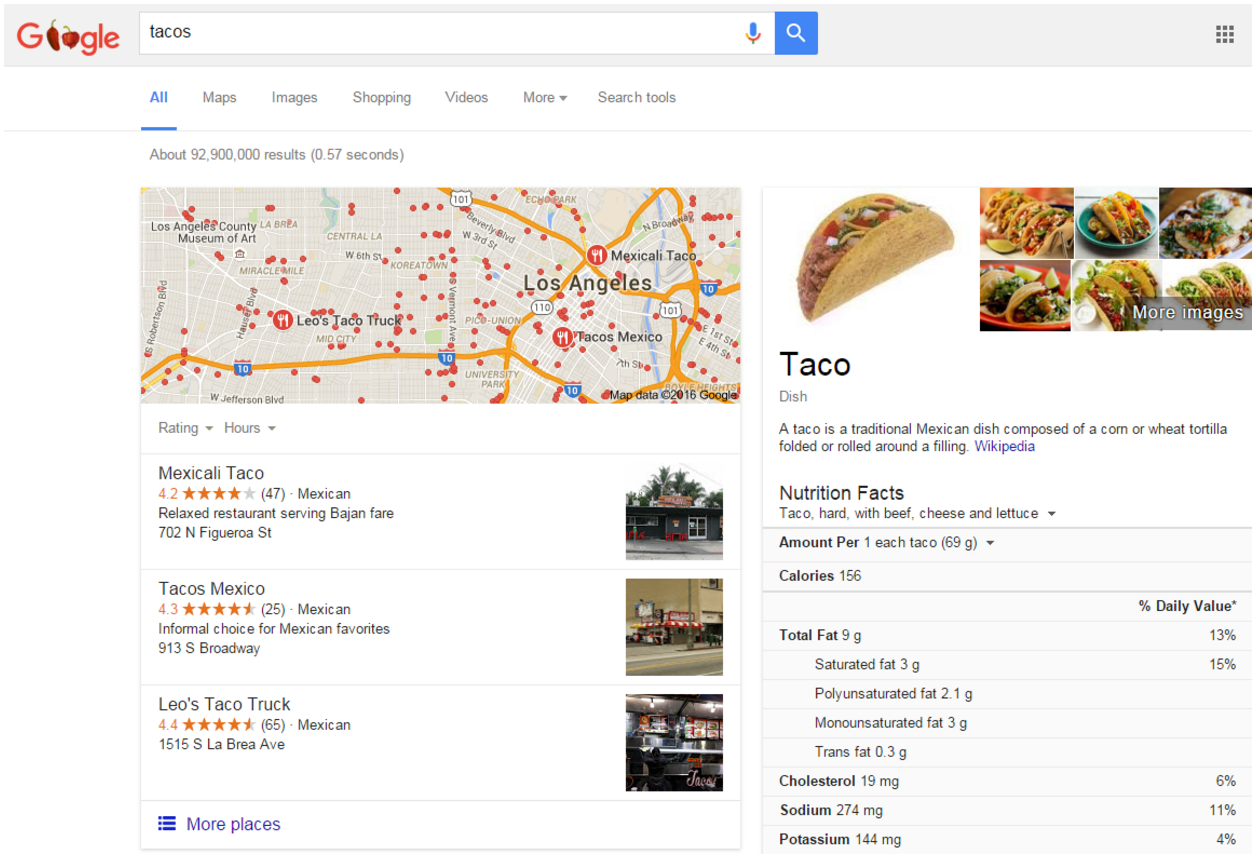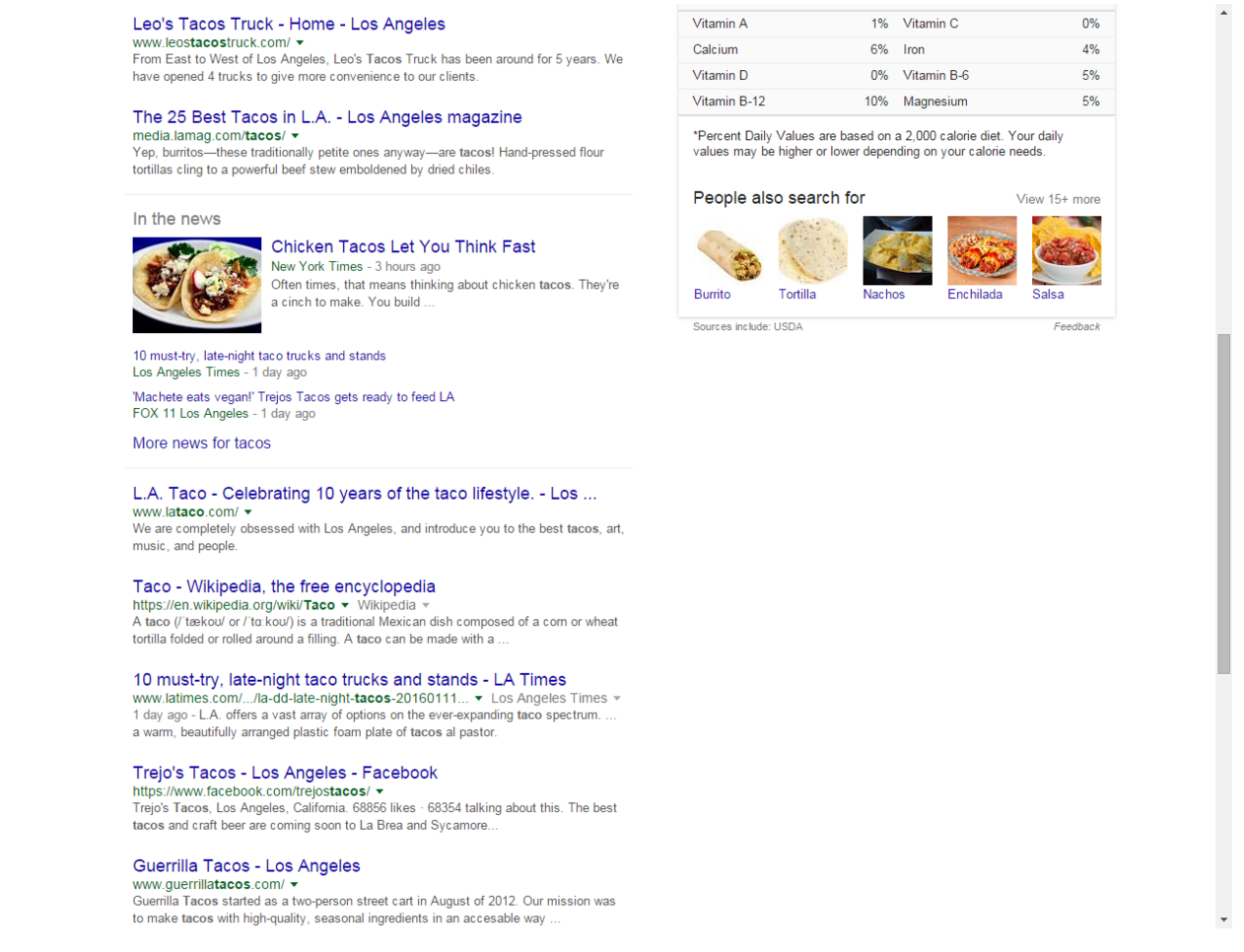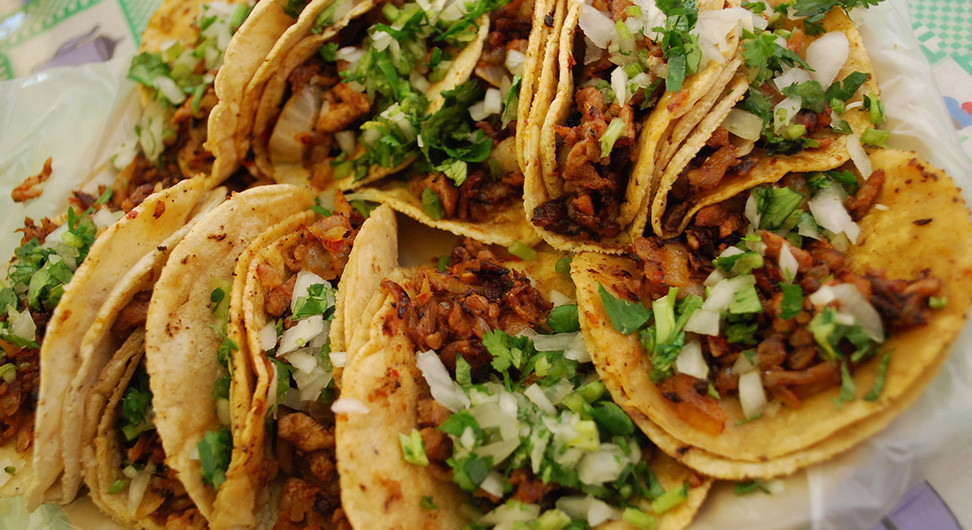Local SEO Tips for Metro Area Businesses
Search engines have grown increasingly sophisticated, refining their signals to reduce noise, fight spam, incorporate user experience, and utilize elements of machine learning.
Still, there are instances where a generally useful signal may not play nice with certain queries, and lead to less than perfect results (both for users and the domains trying to earn their clicks).
One prime example is localized results—trying to rank in queries for a certain metropolitan region. This is especially problematic when you do not technically reside within city limits. A taco stand in Santa Monica hoping to woo hungry Los Angelenos, for instance. Algorithmically, this presents some challenges, because a significant portion of local ranking signals are based upon the location of the service provider.
Let’s break down the two types of local results, as they both play by slightly different rules out in the wild.
Local Pack Results

Here we have a local pack of results. These often rank above the localized results and are associated with physical locations of service providers related to the query. Selecting one of the three visible results will take you to the Google My Business page of the selected result, a map of taco slingers in Los Angeles (that’s what I’m calling them), and additional results.
Localized Results

Beneath the local pack are a set of localized results. These are your typical Google universal results, reranked based on the location of the user. Google’s smart enough to know that typing “T…A…C…O…D…[delete]…S” into Google usually isn’t because the user is looking for the history of tacos (even though Google still throws it in for good measure). We’ve all been there.
We’ll break each of these down in terms of what’s needed to rank, mistakes to avoid, and strategies to pursue when business location is less than favorable.
Local Pack Ranking Signals
At the end of the day, search engines measure the success or failure of organic results by how useful they are. This is what keeps users searching, clicking ads, and oiling the revenue machine.
For local pack results, the juiciest relevancy signals are the location of the user, location of the business, NAP citations (Name, Address, and Phone Number), Google My Business categorization, proximity to the searcher, and link signals.
For those of you keeping score at home, half of those are related to location alone.
Unfortunately for our hero taco stand, this makes the local pack ranking signals so location-dependent that they’re going to have a “bad time” with users in Los Angeles. If the searcher is near the Santa Monica border that will help, but they’ll still be missing opportunities with customers willing to travel for their Tex-Mex.
Some businesses with a larger financial incentive may resort to setting up a “sales” office in Los Angeles or engage in spam tactics, though that’s unlikely to help this local taco dealer.
This should not undermine the importance of normal local SEO efforts like citation building, NAP citation accuracy, and Google My Business categorization. People in Santa Monica must like tacos too, after all.
Still, our starry eyed tortilla titan’s real opportunities for targeting Los Angeles searchers exist in localized universal results.
Localized Results Ranking Signals
Here, there’s a broader playing field to work with versus local pack. These results are still location specific, but they’re less reliant on physical location and more reliant on traditional on-page relevancy factors that are within webmaster control. This is good news for this example business.
Here are three tips for building organic traffic even if a business is geographically disadvantaged.
1. “Links…after all this time?” “Always.”
Yep, links aren’t showing signs of going away any time soon.
There are a million and one link building ideas all over the Internet, so this article will not delve into actual tactics. For the record, I’m a fan of Andrew Shotland, Brian Dean, and Jon Cooper in this field.
For a localized query, it can be helpful to look at the query as broken into two parts: the product or service, and the city. The taco stand will want to seek links from pages related to Los Angeles and pages related to tacos, restaurants, etc.
Looking at the localized results for “tacos” it seems mainly comprised of related blog posts (helped by all the linking) and taco makers within the city limits. Some are directly targeting the Los Angeles market through traditional on-page methods, relying on links, positive user engagement, and the semantic understanding of their business location.
Ideally the links earned will point exactly at the page desired to rank (see below), but the homepage is a good second option.
2. Organic Landing Pages
Domains with a significant amount of links will have an easier time ranking for a broader assortment of queries, even if they’re missing certain on-page factors. For the rest of the Internet, honing in on on-page relevancy is a step that cannot be skipped.
Our intrepid taco stand would be well served to create a landing page for each of the cities it services, including Los Angeles and Santa Monica, then link to those pages off of the homepage of the site. If it only serves one location, the homepage can act as this landing page.
Each page should have unique copy targeting “[city] + tacos” in the title, header, and related body copy. It’s not rocket science, but in the world of small business websites, these details are often overlooked.
3. Sometimes You Gotta Pay for It
Paid search is also an excellent way to quickly drive leads to a site. It is an especially good option for time-strapped companies looking to build business quickly, as organic search efforts gestate. As long as the margins are healthy on those paid clicks, that is. In this world, Larry Kim is one of the sharpest minds—especially for local businesses.
Wrapping it Up
Although local pack results don’t present a lot of wiggle room for location-challenged businesses, old fashioned link earning, on-page optimization, and paid search campaigns can serve these businesses quite well.
Kyle Risley is an SEO expert at Vistaprint and also provides freelance SEO consulting. When he is away from his keyboard, he’s usually at a concert or digging through records.
This work is licensed under a Creative Commons Attribution-ShareAlike 4.0 International License.


